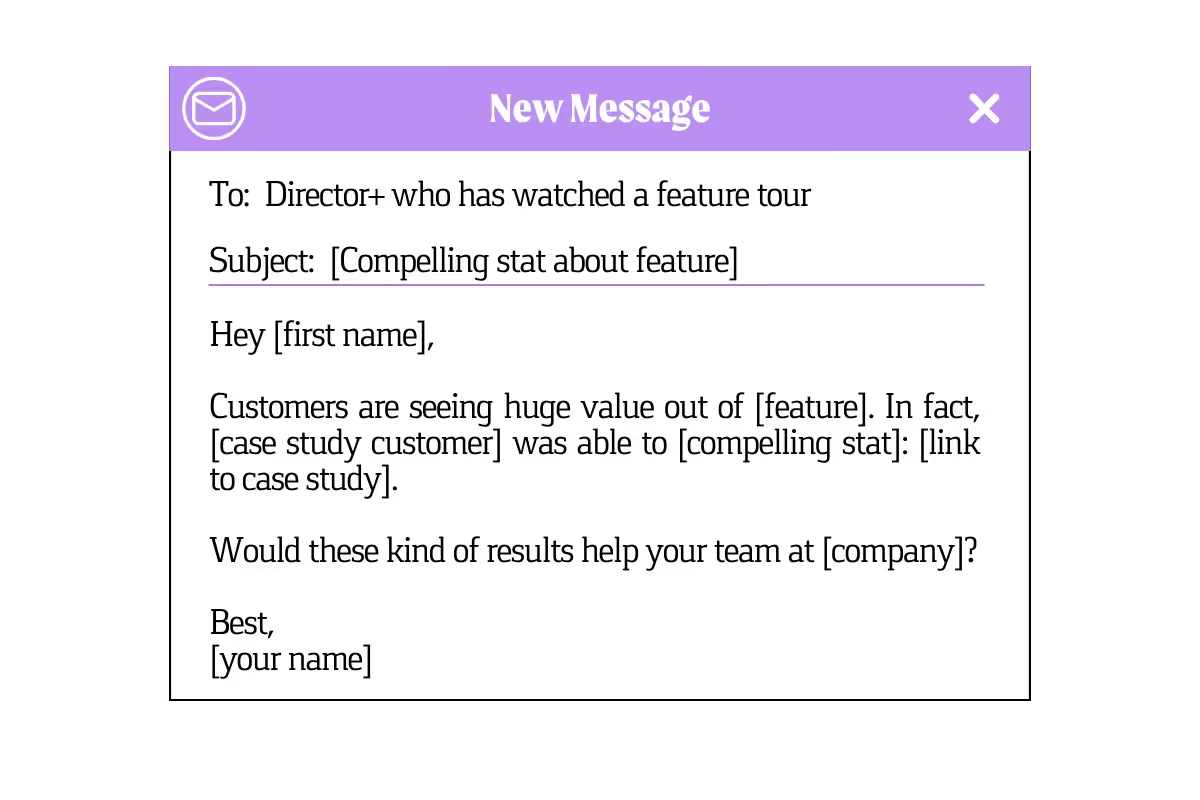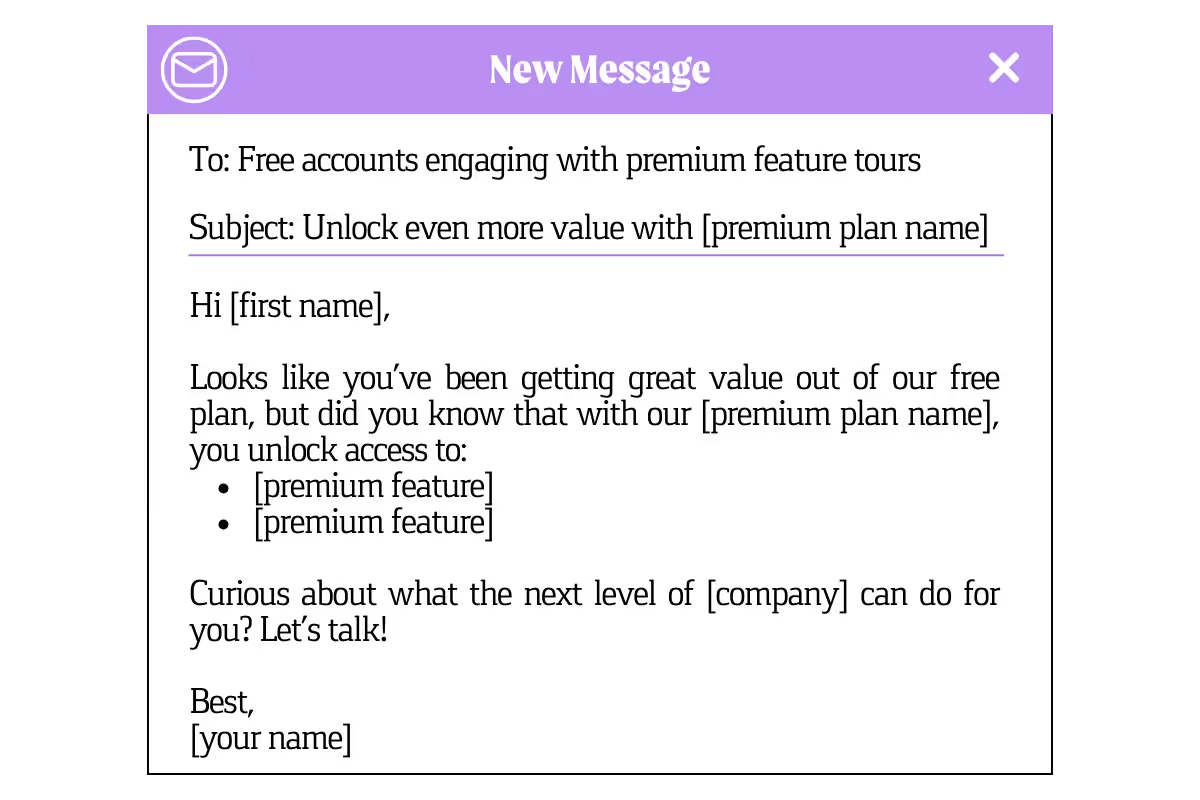Arcade enables sales to easily create and tailor demos for prospects—all with zero code. It offers in-depth insights into demo engagement and content effectiveness. Sales teams use Arcade to win over buyers faster, highlight product features, and accelerate the sales process, all through a single demo. With Arcade, creating demos shouldn't detract from your primary focus—selling.
Arcade x Pocus Integration
Arcade's personalized demos not only help win buyers, showcase your product, and speed up sales cycles, but they also offer valuable engagement signals for your GTM team throughout the buying process. With the integration of Arcade and Pocus, all these important intent signals are now accessible in the Pocus platform and can be used to enhance your playbooks.
Interactive Demo Playbooks Powered by Arcade
Arcade’s demo engagement data can help you:
- Generate pipeline: Uncover prospects engaging with content to run targeted outreach.
- Accelerate sales cycles: Create customized leave-behinds and get insight into how prospects engage with the content.
- Personalization at scale: Save time and increase impact with highly personalized content, all from one demo.
While these playbooks are a great way to get started, you can always custom-build your own playbooks for your own use cases.
Playbook: Director+ Engaged With Feature Demo
Exploring a product’s feature capabilities can be a “dark funnel” action buyers take before engaging with sales. Knowing when the key decision-makers at your target accounts are viewing your demo content lets you get a leg up on the sales cycle and make contact before your competition. Knowing what content they engaged with makes the outreach message even clear.
Goal: Build pipeline by identifying high-intent decision-makers.
Signal: Director+ prospects engaging with a feature demo on the website.
Action: This signal provides a great opportunity for warm outbound! Reach out to the contact and provide more information about the key feature(s) they engaged with. Include eye-catching stats or a compelling case study to drive the conversation forward.

Playbook: Premium (Paywalled) Feature Engagement Engagement
It’s not always obvious when a free user is ready to upgrade to a paid account, but seeking out more information about premium features is a great signal. By targeting free users who have recently watched a premium (paywalled) feature demo, you can start nudging them to convert.
Goal: Convert free users to paid accounts.
Signal: Free users engaging with demos of premium features.
Action: Providing more information about the benefits of a paid plan can help convince a free user that now is the time to convert. You may want to divide outreach by potential deal size, funneling smaller opportunities to marketing for automated follow-up and larger potential customers to sales for a more personalized experience.

Playbook: New Feature Demo Engagement
Drive new feature adoption by encouraging users to experience new features in a guided way.. Feature-release follow-up can streamline learning, boost confidence, and guide users toward crucial product milestones.
Goal: Defend against churn by driving feature adoption.
Signal: Customer engaging with a demo for a new feature but has not adopted the feature yet.
Action: Drive product engagement and feature adoption by following up after a demo with more information and example use cases. This product marketing tactic can be owned by the marketing team and automated using Pocus.
.avif)
Test, Analyze, and Iterate on Your Playbooks
Once building and running signal-based playbooks like these has become the norm for your team, it’s time to experiment, track performance, and iterate. In short, when you find something that works, double down.
- Review playbook performance data regularly. This may seem obvious, but confirming that your playbook is achieving the original goal you aligned it with is important. Engagement metrics and customer sentiment are important, but at the end of the day, the playbook needs to be earning or protecting revenue. Pocus can help streamline this process by consolidating playbook reporting and automatically surfacing playbooks your team might be missing.
- Run incremental tests. Don’t try to change too much too fast when experimenting. Decide which variables might make the biggest, most immediate impact if tested. For example, you can coach reps on how to action leads faster or improve their messaging to see if the playbook performs better. Set an experimentation window during which you’ll gather and measure data.
- Get feedback from the field. Ask your reps what they’re hearing and seeing. They’re a great front-line resource for new market patterns, which messaging resonates, and where there may be new opportunities. They may also have valuable insights on what’s not landing with leads and customers.
Send It!
Take your signal-based playbooks to the next level by integrating Pocus’ GTM platform and Arcade’s interactive demo capabilities. With Pocus and Arcade combined, you can test and refine your playbooks, maximizing your budget and providing tangible results. Get started today and crush your pipeline goals.










